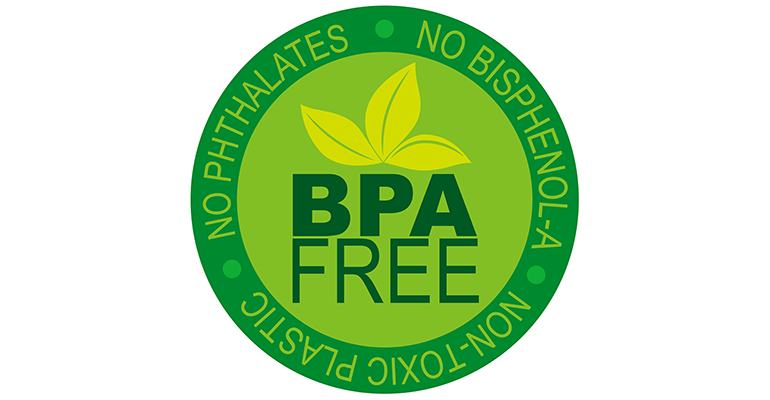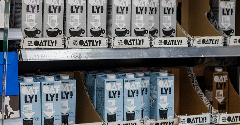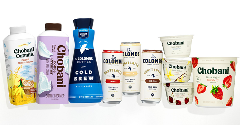News
R3PACK Consortium backs BPA ban
9 Apr 2024The EU-funded research project, R3PACK, urges a ban on Bisphenol A (BPA) and calls for rigorous rules, promoting transparency and prioritising health and the environment.
The R3PACK Consortium advocates for the elimination of BPA and other harmful substances from food and beverages. Additionally, it emphasises the importance of promoting transparency in chemical management and risk analysis to protect public health and the environment, calling for policymakers to prioritise these efforts.

R3PACK, a project funded by the EU Horizon programme, aims to create novel fibre-based packaging, and increase the adoption of reuse schemes. The Consortium brings together 34 organisations from seven countries and draws on the expertise and experience of industry players throughout the food value chain, including packaging manufacturers and retailers.
In March 2024, R3PACK provided feedback on the European Commission’s (EC) public consultation prohibiting BPA in food contact materials (FCMs).
A harmful threat
BPA, a hazardous chemical, is found in plastics and resins used in many food and beverage packaging. Unfortunately, this chemical can enter the food and beverages it comes in contact with, ultimately entering the human body and posing a significant risk to human health.
“The risks of BPA for food and beverage consumers include potential adverse effects on the immune system, fertility, hormonal systems, and skin allergies,” Francisco de Araújo Vasquez, project and policy officer at Safe Food Advocacy Europe (SAFE), told Ingredients Network.
Moreover, recent research suggests a possible link between BPA exposure and childhood obesity, indicating its role in promoting different microbial communities that may pose risks, Vasquez adds.
Research also indicates that micro- and nano-plastics have the potential to contaminate agricultural soils, irrigation water, and oceans with BPA. Living organisms can then absorb this contaminant, leading to its entry into the food chain. Implementing the Commission’s proposed ban is, therefore, crucial. The ban would protect the environment and the human food chain, essential for maintaining a healthy lifestyle, SAFE indicates.
Embracing a comprehensive approach
The R3PACK Consortium says the sector needs to take several steps regarding the ban of BPA to promote transparency and prioritise public health and the environment.
SAFE says a far-reaching approach to eliminating harmful substances such as BPAs, per- and polyfluoroalkyl substances (PFAS), and phthalates are essential. One effective way to promote safety in recycling processes is to gradually phase out these substances from primary articles and embrace circularity.
Consumers should also have access to transparent and freely available information about food and beverage products’ chemical content. Providing this information enables consumers to make informed decisions based on accurate information, promoting sustainable consumption practices, SAFE says.
The industry also needs to consider the interactions between various hazardous substances found in the environment and food to enhance the accuracy of risk analysis. Relying solely on a single-point risk analysis may not accurately assess consumer exposure to harmful substances. Therefore, SAFE calls for a multi-faceted analysis system for a more precise evaluation.
Demand for stricter rules and regulations
The European Commission (EC) recently closed a feedback period on its draft act prohibiting BPA use in FCMs across the EU.
“Stricter rules and regulations are required due to the widespread presence of BPA in consumer products and the environment, as highlighted by studies showing detectable levels of BPA in the urine of a significant percentage of Europeans,” Vasquez says.
Furthermore, SAFE says that BPA and other microplastics pose health risks and have been found in human tissue samples, arteries, and the food chain, necessitating urgent action to mitigate exposure.
 © AdobeStock/jpldesigns
© AdobeStock/jpldesigns
The decision comes after the European Environment Agency released a study in 2023 that discovered approximately 92% of European adults have elevated levels of BPA in their bodies. These levels exceeded the maximum recommended limits the European Food Safety Agency (EFSA) set.
The EC’s initiative emerged following the EFSA opinion, which indicates a concern for human health. If adopted, the initiative will ban the use of BPA in FCMs, including plastic and coated packaging, across the EU. Along with the ban, the initiative would address using other bisphenols in FCMs to prevent the sector from replacing BPA with other harmful substances. It would also set out derogations and transitional periods that may apply to food and beverage businesses.
“Policymakers can improve the landscape by implementing bans on BPA and other harmful substances in consumer products, adopting the precautionary principle, and enforcing stricter requirements on chemicals to ensure consumer and environmental safety,” says Vasquez.
“Additionally, improving risk analysis by considering interactions between different hazardous substances and enhancing transparency in chemical management and risk analysis are essential steps,” Vasquez adds.
Responsive manufacturing approaches
If these changes are implemented, SAFE says food and beverage manufacturers will need to adapt their production processes to comply with stricter regulations. This could potentially lead to the reformulation of products or the adoption of alternative packaging materials free from BPA and other harmful substances.
“However, these changes are necessary to ensure consumer safety and promote sustainable consumption practices,” Vasquez says.
“If stricter regulations are not implemented, consumers should take proactive measures to minimise their exposure to BPA by choosing products with BPA-free packaging,” Vasquez adds. However, Vasquez says this approach requires research and cannot be easily done. Currently, packaging containing BPA is not explicitly required to be marked as such in the EU, SAFE’s project and policy officer adds.
“Avoiding heating food in plastic containers and opting for fresh or minimally processed foods whenever possible” are also vital recommendations, Vasquez says.
Additionally, staying informed about the presence of BPA and other harmful substances in consumer products can help consumers make informed choices to protect their health.
Related news

Ultra-processed food intake in South Africa at concerning levels, study suggests
19 Mar 2024
As South Africa considers introducing front-of-pack warning labels and strict marketing limits for unhealthy foods, research has found that low-income South Africans get around half of their calories from ultra-processed foods (UPFs) – “a cause for con...
Read more
As Gen Z shies away from alcoholic drinks exotic flavours are the big draw
11 Mar 2024
With Gen Z drinkers proving to be the driving force behind the sober curious movement, we spoke to Bax Botanics, an artisanal distiller of zero-alcohol botanical beverages, to find out what appeals to its younger drinkers.
Read more
Young consumers' demand for functional ingredients is driving change in the beverage industry
11 Mar 2024
Younger consumers are blurring the boundaries between food and beverage – demanding a wide variety of functional ingredients, but in a drinkable format that compliments their on-the-go lifestyles.
Read more
Brazilian manufacturers must comply with warning label regulation, says court
7 Mar 2024
The Federal Court of São Paulo has ruled that Brazilian manufacturers must comply with front-of-pack labelling regulation that requires unhealthy products to feature warning labels, scrapping a last-minute one-year extension.
Read more
Macauba oil emerges as potential rainforest-friendly palm oil alternative
1 Mar 2024
Producers and researchers consider the rainforest-friendly credentials of Macauba palm oil and whether its sustainability credentials offer an opportunity to replace palm oil.
Read more
Jelly Drops made of 95% water tackle dehydration among seniors
27 Feb 2024
Specialised nutrition startup Jelly Drops makes small jelly drops that contain 95% water and added electrolytes and vitamins to combat dehydration among elderly people and those with dementia who often forget to drink– a common yet previously underserv...
Read more
Mycelium to move beyond plant-based applications
12 Feb 2024
As mycelium development kicks off in 2024 with new multi-million investment, product development, and retail expansion, manufacturers lean into launches.
Read more
UK High Court allows Oatly to use 'milk' on packaging
17 Jan 2024
Oatly has scored a landmark victory in the use of the word milk after the UK High Court ruled against the country’s dairy industry and permitted the term to be used on packaging.
Read more
Chobani expands drink presence with La Colombe acquisition
16 Jan 2024
Greek yoghurt giant Chobani has purchased US coffee brand La Colombe Coffee Roasters for $900 million, furthering its expansion into beverage categories like coffee, oat milk, creamer and ready-to-drink offerings.
Read more
PepsiCo to reshape convenient foods portfolio with less sodium and more plant proteins
10 Jan 2024
PepsiCo has revealed details of two nutrition goals that look to reduce sodium and boost consumption of legumes, whole grains, and plant-based proteins as part of the multinational’s expanded convenient foods portfolio.
Read more